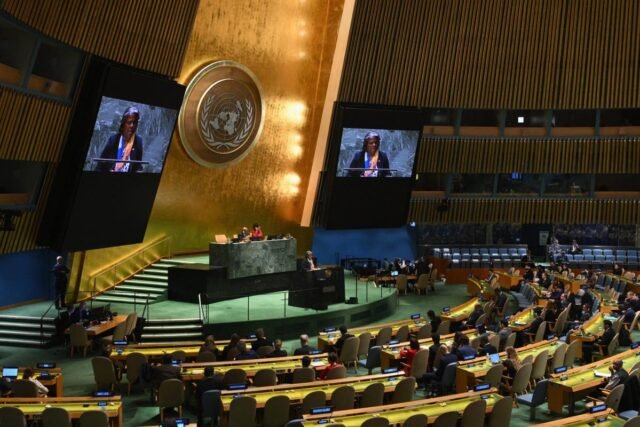
In an unprecedented move, the United States, along with several global partners, has spearheaded a resolution to harness the potential of artificial intelligence (AI) as a strategic tool in the battle against poverty and hunger. This initiative, born out of a collaborative effort among nations including Japan, Kenya, Morocco, Singapore, Spain, the United Kingdom, and the United States, underscores the urgency and the unique opportunity presented by AI to address some of the world’s most pressing issues.
Key Highlights:
- A ministerial side event convened during the United Nations’ 78th Session High-Level Week in New York City, focusing on AI’s potential to accelerate progress on the UN Sustainable Development Goals (SDGs).
- Governments, AI developers, and various stakeholders have committed to the safe, secure, and trustworthy deployment of AI technologies to tackle global challenges.
- Concrete applications of AI demonstrated by major organizations and corporations aim to advance progress in health, education, food security, energy, and climate action.
- Concerns were raised about the potential for AI to exacerbate inequality, entrench bias, and disrupt societies if not managed responsibly and inclusively.
The discourse at this event highlighted AI’s vast potential to drive inclusive and sustainable growth, reduce poverty and inequality, enhance environmental sustainability, and empower individuals across all stages of development. However, it also brought to light the challenges and ethical considerations inherent in AI development and deployment, emphasizing the need for a collaborative, inclusive approach to harness AI’s benefits while mitigating its risks.
The International Dialogue on AI
The urgency to address the dual nature of AI—its potential for both unprecedented benefits and significant risks—has sparked a global conversation. Jack Clark, co-founder of Anthropic, emphasized the necessity of a collaborative effort across all sectors of society for the development of powerful AI systems, cautioning against leaving this monumental task solely to the private sector. This sentiment echoes the broader call for international cooperation to ensure AI developments are harnessed responsibly and inclusively.
AI for Global Good
The initiative reflects a growing consensus on the critical role AI can play in addressing global challenges, from economic development and public health to gender equality and environmental sustainability. Participants at the event recognized that for AI to realize its full potential, it must be governed responsibly, with all parts of the world benefiting from its advancements. This underscores the importance of partnership between governments, the private sector, and civil society in achieving these goals.
As the global community stands at the crossroads of technological advancement and societal needs, the US-led resolution presents a visionary approach to leveraging AI for the greater good. By fostering international collaboration and establishing frameworks for responsible AI development and deployment, there is a unique opportunity to make significant strides towards ending poverty and hunger, while also addressing the broader Sustainable Development Goals.








